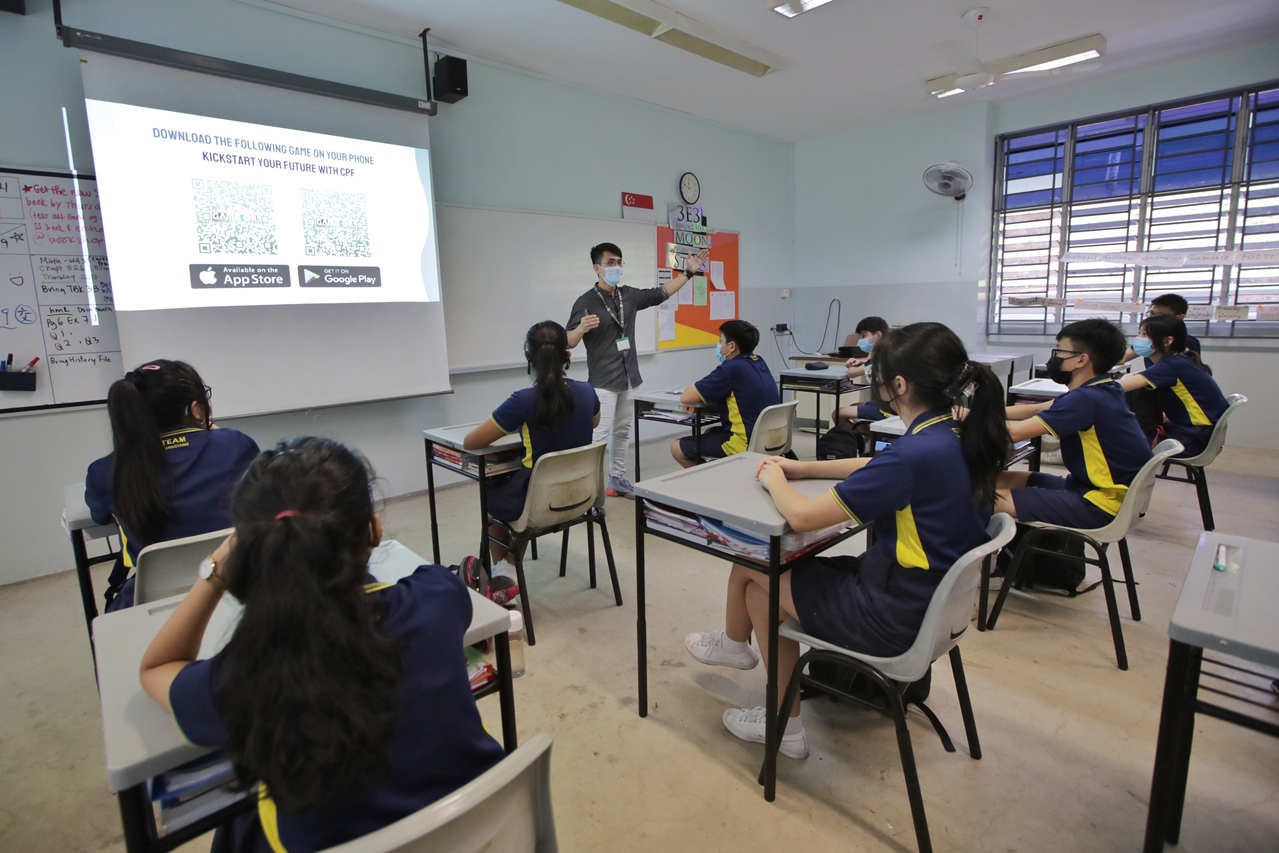Teachers' workload: Measures in place to ease burden, says Chan Chun Sing
Sign up now: Get ST's newsletters delivered to your inbox

To address concerns over workload, the ministry has given schools greater flexibility to pace the implementation of selected initiatives.
PHOTO: ST FILE
SINGAPORE - The Ministry of Education (MOE) has called on school principals to ease the mental burden on teachers by establishing clear expectations of teachers' availability and work hours.
Responding to questions from MPs in Parliament on Tuesday (Nov 2), Education Minister Chan Chun Sing said school leaders have, for instance, been providing guidance on avoiding parent-staff communication after school operating hours except for urgent matters, such as those involving the safety and well-being of students.
This can minimise the blurring of lines between work and personal time, he added.
Mr Patrick Tay (Pioneer) had asked about the annual number of cases of mental distress or psychiatric issues reported by teaching staff, and what the ministry was doing to alleviate the stress they encountered.
Dr Wan Rizal (Jalan Besar GRC) had asked whether there has been an increase in a teacher's workload and blurring of lines between work and personal time, and whether steps have been taken to measure teachers' mental health and ensure they are not overwhelmed and suffer from burnout.
Their questions come amid reports of worsening mental health among teachers since the start of the Covid-19 pandemic due to new pressures, including heavier workloads brought about by conducting home-based learning and contact tracing.
Mr Chan acknowledged that teaching staff have shouldered a heavy responsibility to ensure students can continue learning safely during the pandemic.
To address concerns over workload, the ministry has given schools greater flexibility to pace the implementation of selected initiatives, including deferring their roll-out if this helps to spread out staff workload.
Secondary schools and junior colleges, for example, have been given the option to defer blended learning to 2022 instead of Term 3 this year as originally planned, he said.
Mr Chan noted that practices may vary on the ground, and principals should also re-prioritise school programmes and encourage supervisors to check in with their officers regularly.
He added that the workload imposed by contact tracing and Covid-19 management has now been reduced with the Ministry of Health's "significantly simplified" protocols.
In addition, institutes of higher learning have implemented various measures tailored for them, such as not requiring staff to reply to work e-mails after office hours unless there are exigencies.
Mr Chan noted that about 50 staff from schools had sought support from MOE's in-house counsellors annually before Covid-19, and this has increased to about 80 since last year.
The number of staff at institutes of higher learning seeking counselling support has also increased, but the ministry does not have more detailed data, as information from all counselling sessions is kept confidential, and staff are not required to report mental distress or psychiatric issues, he added.
Mr Tay asked further about concrete steps that MOE will take to reduce pressures from other stakeholders and non-essential work to support better work-life harmony so that educators can better attend to their loved ones.
In reply, Mr Chan outlined more short-term and long-term measures that MOE plans to put in place, including systematic breaks for teachers to recharge themselves throughout the year.
He said: "We recognise the exceptional demands that Covid-19 has placed on our staff, and have put in additional effort to promote a positive and supportive work environment for staff well-being across schools and institutes of higher learning".
Calling for a whole-of-society approach, Mr Chan urged parents to avoid putting excessive demands on teachers.
The minister said that based on teacher feedback, "there is a small minority of parents that place a very huge demand on our teachers".
"It is perhaps unfair for the teachers if they are unable to... take care of all the students because of high demands placed on them by a very small group of parents."
-
Helplines
• National Care Hotline:
1800-202-6868 (8am - 12am)
1800-202-6868 (8am - 12am)
Mental well-being
• Institute of Mental Health's Mental Health Helpline:
6389-2222 (24 hours)
6389-2222 (24 hours)
• Samaritans of Singapore:
1800-221-4444 (24 hours) /1-767 (24 hours)
1800-221-4444 (24 hours) /1-767 (24 hours)
• Singapore Association for Mental Health:
1800-283-7019
1800-283-7019
• Silver Ribbon Singapore:
6386-1928
6386-1928
• Tinkle Friend:
1800-274-4788 and www.tinklefriend.sg
1800-274-4788 and www.tinklefriend.sg
• Community Health Assessment Team:
6493-6500/1 and www.chat.mentalhealth.sg
6493-6500/1 and www.chat.mentalhealth.sg
Counselling
• TOUCHline (Counselling):
1800-377-2252
1800-377-2252
• TOUCH Care Line (for seniors, caregivers):
6804-6555
6804-6555
• Care Corner Counselling Centre:
1800-353-5800
1800-353-5800
Online resources


